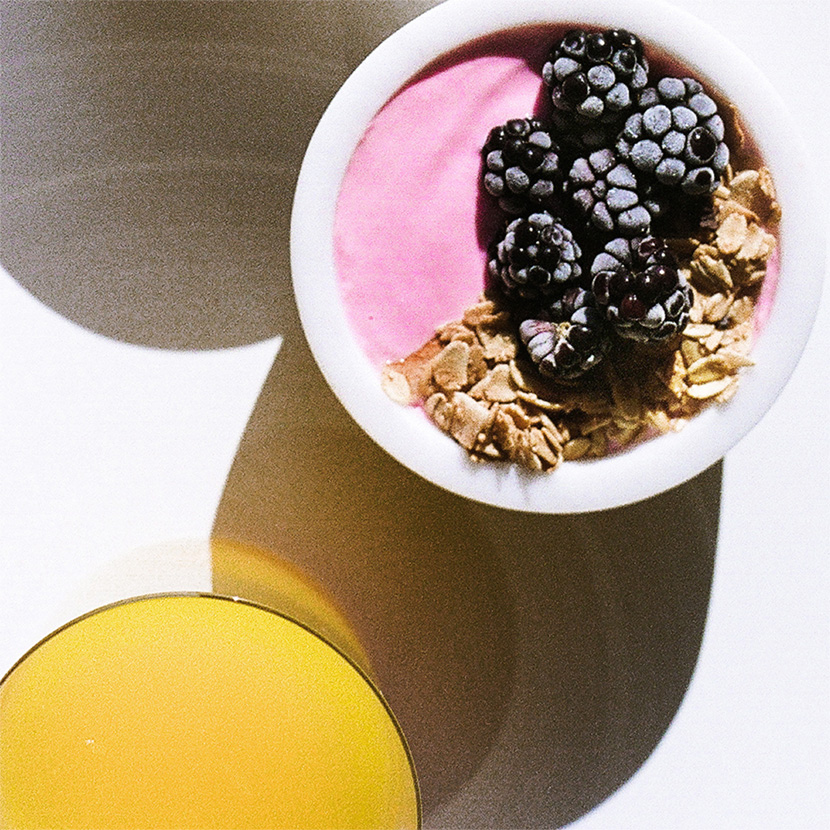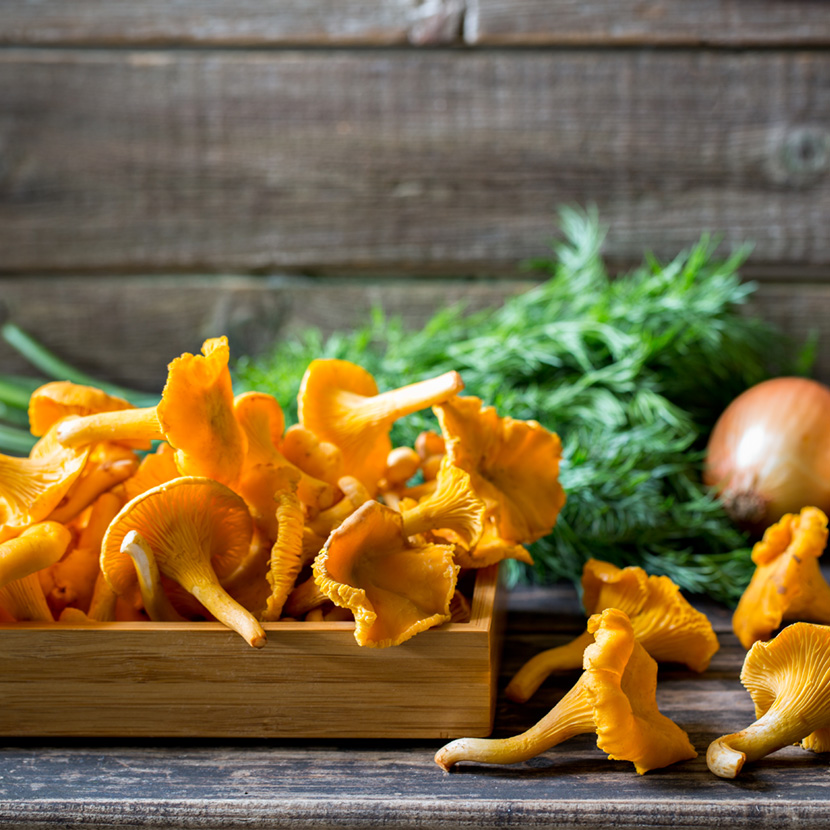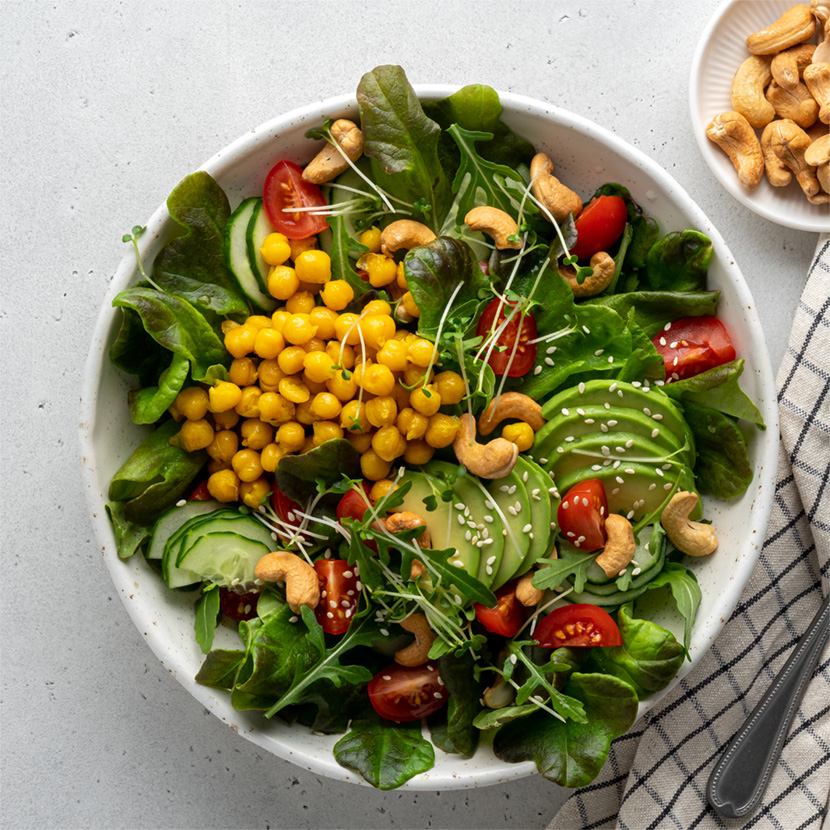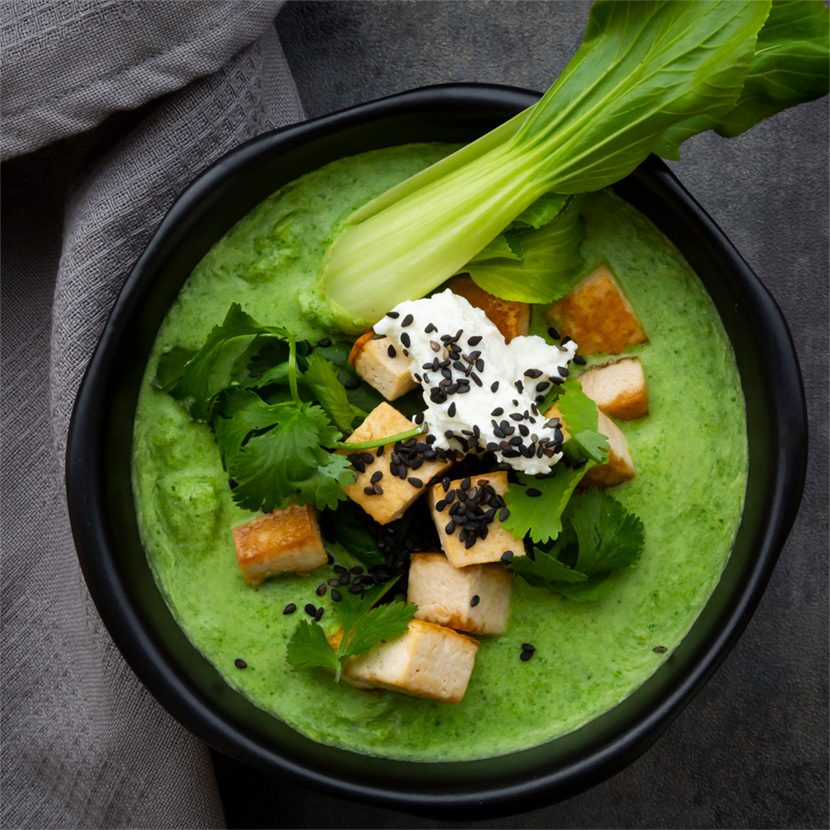HEALTH
no deficiencies please


Plant-based, balanced and healthy – how best to prevent deficiencies
“People who eat a vegan diet bring about a permanent state of malnutrition and unbalanced nutrition.” Few prejudices about plant-based diets are as persistent as the mistaken belief that plant-based foods do not provide enough for the body or the metabolism, and that they cause a gaping hole in the range of nutrients your body has access to. But after all, prejudices are there to be broken down.
As is the case with any diet, anyone who decides to follow a plant-based diet must make sure that what they eat each day is balanced. This involves being conscious of what ends up on your plate each day. Anyone who thinks critically about their diet will quickly establish whether they are giving their body everything it needs or falling into unbalanced food habits.
The good news is that even by eating just plants, you can give your body all the energy and everything else it needs each day. Knowing enough about what goes into your food is essential for this, as this is the only way to be sure what valuable substances are to be found in which foods.
Iron
As a source of oxygen, trace element, and vital for metabolism, iron plays a role in many vital biological mechanisms and metabolic processes. The most important of all these functions is the key role iron plays in providing the body with oxygen.
Iron is mainly found in red blood cells as part of the protein molecules hemoglobin and myoglobin, which is why meat contains high levels of iron. In a vegan diet, a replacement needs to be found for this principal source of iron.
Plant-based sources of iron include pulses, nuts, whole grains or vegetables such as spinach, lamb’s lettuce or zucchini. As plant-based iron sources have a lower bioavailability than the iron in animal products, targeted help is needed to help your body absorb the iron. A good way of achieving this is to eat the iron sources in combination with vitamin C – for example by eating oat muesli (iron) with orange juice (vitamin C), in order to optimize iron absorption.
Indicators that you may have an iron deficiency are headaches, difficulty concentrating, tiredness and dizziness.
But be careful: consuming phytates, phosphorus, oxalates or high levels of zinc can hinder iron absorption. The daily recommended allowance is 10mg per day. Particularly high levels of iron are needed by people who are pregnant (20-30 mg per day), and by growing children (8-15 mg per day).

Vitamin D

The “sunshine vitamin” plays a key role in bone metabolism, as it allows calcium to be absorbed by the bones. Having too much of the vitamin leads to a drastic increase in calcium levels in the blood, which can lead to serious organ damage. Furthermore, vitamin D is not “just” a vitamin, but also a hormone, which is why it has a dual significance for the body and the metabolism.
The majority of the vitamin D the body needs is produced by the body itself with the help of sunlight (self-synthesis). If you live in a climate similar to that of Germany, this means that between March and October, regularly spending time outside is enough to ensure that your body can produce enough vitamin D. If enough vitamin D is produced, it is stored by the body and released again when needed.
Small amounts of vitamin D (approx. 10-20%) can be consumed in food. Natural sources of vitamin D include fish, dairy products and eggs, which are not an option as part of a vegan diet. Plant-based alternatives include mushrooms (especially chanterelle mushrooms) and avocados. Cocoa also contains low levels of vitamin D. However, just eating these foods is not enough to meet the body’s vitamin D requirements (20 μg per day).
Vitamin D deficiency manifests itself in frequent illness, exhaustion/tiredness, depression, hair loss, and bone, back or muscle pain.
Interestingly, the German Nutrition Society (DGE) says the following: “The amount of vitamin D you can get from normal foods is not enough to ensure the desired supply if there is a lack of internal synthesis. This means that in addition to using food as a source, the supply must be ensured using internal synthesis and/or taking a vitamin D supplement. If you are frequently outside in sunlight, your body will have enough vitamin D without you having to take a supplement.”
Vitamin B12
This is where things get complicated, because vitamin B12 (cyanocobalamin) is naturally found only in animal products such as milk, meat and eggs. This means that this vitamin has a special role in the vegan diet, as it cannot be replaced by plant-based products. Vitamin B12 is essential for the nervous system, growth, and the production of red blood cells. It also plays a role in energy metabolism as well as in cell maturation and cell division. The DGE recommends an intake of 3µg per day in order to avoid deficiency.
Sometimes, the consequences of a vitamin B12 deficiency do not become apparent for years. Symptoms include paralysis, itching, a burning sensation on the tongue, weak muscles, tiredness, headaches and depression.
For a plant-based diet, care should be taken that enough vitamin B12 is consumed by way of dietary supplements or specially fortified foods. There’s a great variety to choose from: tablets, drops, sprays or even vitamin B12 toothpastes.
Protein

It’s a widespread cliché that a vegan diet does not provide enough protein. The fact is, however, that if you have a balanced diet and consume enough calories, you will have enough of all the important amino acids. The main plant-based protein sources are pulses and whole grains. Additional sources include nuts and seeds as well as soy products, chickpeas and tempeh.
The biological value of plant-based proteins can be improved by means of preparation (boiling, steaming) or by combining very different plant-based protein sources. To be sure that you aren’t deficient in protein, it’s recommended that for a vegan diet, you consume 10% more protein than an omnivore would. (0.8g per kg of body weight per day, plus 10%)
Protein deficiencies manifest themselves primarily in the form of weight loss, hair loss, muscle weakness and premature wrinkles.
Iodine
Both too little and too much iodine can have a negative impact on the thyroid and overall health. Non-vegans tend to get their iodine mainly from meat and fish, but this needs to be replaced in vegan diets. In addition to iodized salt, iodine-containing seaweeds or algae are ideal for supplementing iodine levels in a targeted way without having to resort to artificial dietary supplements. The iodine content of plants and vegetables varies depending on the iodine levels in the soil in which they grow, which means that you can’t rely on a certain iodine level being present. Iodine deficiencies show up as weight gain, tiredness, skin problems such as dandruff or dryness, as well as concentration problems and hair loss.
Omega 3 fatty acids
In principle, our bodies are able to synthesize a lot of the omega 3 fatty acids we need by themselves. In addition to self-synthesis, we can get omega 3 from food. Omnivores usually get it by eating fish. However, the only reason that fish are rich in omega 3 is because it accumulates in their body tissue via their food (as do other unwanted substances). This is why it’s much healthier – for non-vegans, too – to supplement omega 3 by taking microalgae oil. Seeds and plant-based oils are also sources of healthy, essential fatty acids. To ensure you get enough long-chain omega 3 fatty acids (EPA and DHA) during times when your body particularly needs them (pregnancy, breastfeeding, growth), you should take another form of supplement in addition to consuming microalgae. This is not necessary at other times.
Zinc
Alongside iron, zinc is the most significant trace element for the body in terms of quantity. It has several key roles within the immune system, as part of wound healing and in protein metabolism. In non-vegan diets, the usual sources of zinc are dairy products, fish and meat. However, plant-based ingredients can also have a high zinc content, thus fully replacing the animal-based sources. Good plant-based sources of zinc include pulses, whole grains and nuts, but also green vegetables.
Who would have thought it: 100g of pumpkin seeds contain 7g of zinc, which is even more than a 100g fillet of beef – with just 4g of zinc.
Calcium
Bones, teeth, connective tissue, metabolism – the macro-element calcium is indispensable for many parts of the body and processes within it. In non-vegan diets, a lot of calcium is consumed via dairy products. If you are vegan, you can get plenty of calcium from green veg/veg low in oxalic acid, especially kale and spinach. A positive “side effect” of eating spinach is the energy it gives you. The disadvantage of spinach, however, is the low bioavailability of the calcium it contains. Powerful sources of calcium with good bioavailability include nuts and seeds such as sesame, chia, linseeds, almonds or hazelnuts.
If a vegan diet is supplemented with a focus on these calcium-rich plants and/or plant milks fortified with calcium, it is absolutely possible to reach your daily recommended intake of calcium from vegan food alone.
Interestingly, studies show that on average, vegans tend to consume less calcium, which means that they have a slightly lower bone mineral density. However, it has not been proven that this has any negative consequences on their health.

Signs of a deficiency
Despite having lots of information about ingredients and the substances they contain, there is always a chance that in certain life situations, we may experience deficiencies – but this is true for everyone, not just vegans. What is dangerous is that deficiencies do not make themselves known suddenly; instead they are a gradual process, because our bodies are masters of compensating. Before a deficiency makes itself noticeable by way of symptoms, the body first uses up its own reserves, for example in the liver, which stores many nutrients.
Only once these hard reserves have been used up does the body signal that there is a deficiency.
Common signs of a deficiency:
• Muscle pain
• Lower stamina
• Long periods of bad mood or lack of motivation
• Tiredness and exhaustion
• Hair loss and skin problems
• Weight problems
• Large appetite or lack of appetite
Tip: to make sure deficiencies are recognized rapidly and you are able to take action, it’s recommended that you have a yearly check-up with your doctor, who will be able to see how things are going from your blood test results. This also applies to NON-vegans, of course!














